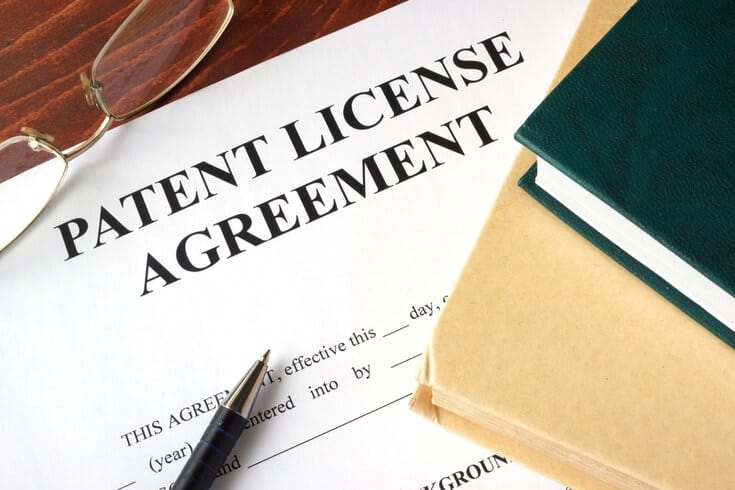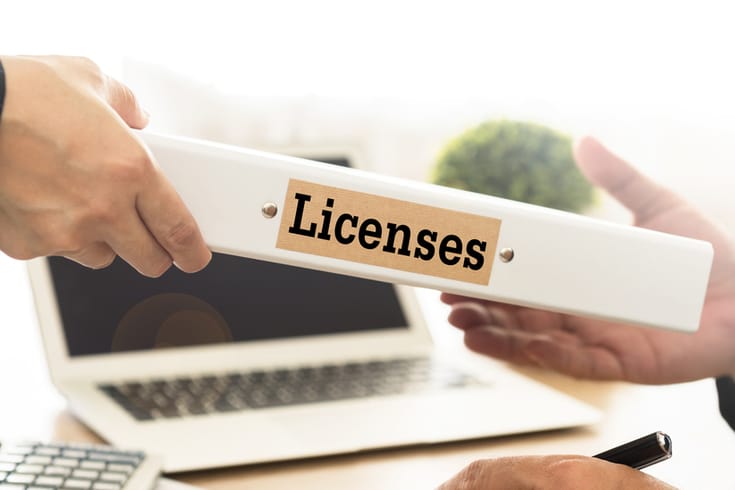Explaining 10 Key Points to Be Aware of in Licensing Agreements

In recent years, the advancement of the internet has increased the opportunities for freely expressing ideas and creative works, thereby heightening the importance of intellectual property rights.
In order to use someone else’s intellectual property rights, unless legally permitted, it is generally necessary to obtain a license from the rights holder. This contract to obtain permission from the rights holder for the use of intellectual property rights is referred to as a ‘license agreement’.
This article will explain key points to avoid violating a license agreement.
What is a License Agreement?
A license agreement is a contract that stipulates the conditions for allowing others to use the following rights:
- Copyrights owned by others
- Trademark rights owned by others
- Patent rights owned by others
- Design rights owned by others
- Other intellectual property rights, etc. owned by others
- Copyrights owned by oneself
- Trademark rights owned by oneself
- Patent rights owned by oneself
- Design rights owned by oneself
- Other intellectual property rights, etc. owned by oneself
For example, suppose you want to print and sell illustrations of personalitys that are copyrighted or trademarked by others on your company’s products. In such a case, if you print and sell the illustrations without permission, you would be infringing on the copyrights or trademark rights. Therefore, a license agreement is necessary to legally print the illustrations on your company’s products and sell them.
https://monolith.law/corporate/intellectual-property-infringement-risk[ja]
Key Clauses to Note

This article explains the key clauses to be aware of in order to avoid violating a license agreement.
Clause on the Rights in Question
If the rights subject to the contract are not clearly defined, the licensor (rights holder) may claim that certain rights are outside the scope of the contract, while the licensee (client) may argue the opposite, potentially leading to disputes. Misunderstandings can lead to allegations of contract violations.
For example, consider software. It may be composed of various intellectual properties such as program codes, and it is important to specifically define which parts fall within the scope of the license agreement. As software may be upgraded or improved, it is necessary to clearly stipulate whether the modified software is also included in the scope of the license agreement.
https://monolith.law/corporate/it-software-copyright[ja]
Clause on the Use of the Rights in Question
Even if the rights in question are clearly defined, disputes can arise if the specific permitted uses are not clearly stipulated.
Again, let’s consider software as an example. The licensee (client) may manufacture a product incorporating the software licensed by the licensor (rights holder) and sell that product to customers. It is necessary to confirm in advance whether such use is possible.
Clause on Whether the Rights are Exclusive or Non-Exclusive
For example, if a clause stipulates that the licensee (client) can use the rights in question exclusively and cannot provide a license for the rights to anyone else, providing a license to an excluded party would constitute a contract violation. Be sure to clearly define whether the rights are exclusive or non-exclusive.
Clause on License Fees

It is necessary to clearly define the amount and calculation method of the license fee. Possible methods include setting a fixed fee for a certain period or calculating the license fee by applying a certain percentage to the licensee’s (client’s) revenue.
Regardless of the calculation method, it is important to have a clause that unambiguously determines the amount. If the license fee is not clear, there is a risk of contract violation due to non-payment, such as paying the wrong amount.
It is also important to clearly define the payment deadline and method in terms of cash flow.
Clause on Revenue Inspection, etc.
Disputes may arise if the licensee (client) underreports the revenue that forms the basis for calculation. Let’s stipulate that the licensor (rights holder) can conduct revenue inspections, etc.
- A clause stating that the status of revenue will be reported regularly
- A clause stating that documents related to revenue will be provided
- A clause allowing access to business or office premises
These are some examples.
Clause on Non-Competition Obligations
It is common for a clause to prohibit the licensee (client) from engaging in competitive activities. It is normal for licensors to want to receive as much license fee as possible. If competitive activities are carried out, the license fee received may decrease, hence the existence of a non-competition clause.
It is important for the licensee (client) to check for the presence of a non-competition clause when entering into a contract.
Clause on Contract Duration
Normally, when a license agreement ends, the ability to use the rights in question also ends. Consider carefully the duration needed.
Clause on Contract Renewal
There may be clauses that allow the license agreement to be renewed at the request of the parties, or that allow automatic renewal if no request is made. This can be a contentious point if you thought the contract was renewed or if it was automatically renewed against your will. Be sure to clearly define the clause on renewal.
Clause on Contract Termination
There may be cases where you want to terminate the contract due to violations of the contract terms, etc., but if this does not go well, you may suffer damages. Let’s describe in more detail what kind of contract violations, etc., allow you to terminate the contract.
Clause on Measures After Contract Termination
As a licensor (rights holder), it is necessary to prevent the continued use of rights even after the contract has ended. As a licensee (client), it is important to carefully check the measures after contract termination to avoid infringing on rights.
Summary

We have explained the key points to avoid violating a license agreement.
While it is essential to thoroughly check the contents of the agreement to prevent violations, there are many types of clauses, and omissions or ambiguous expressions can cause problems.
The priority and necessity of each clause can vary depending on the agreement, requiring more specialized legal knowledge and experience. We recommend consulting with a knowledgeable law firm at least once.
Guidance on Contract Creation and Review by Our Firm
At Monolis Law Firm, as a law firm with strengths in IT, Internet, and business, we offer services such as the creation and review of various contracts, not limited to license agreements, to our advisory and client companies.
If you are interested, please take a look at the details below.





















